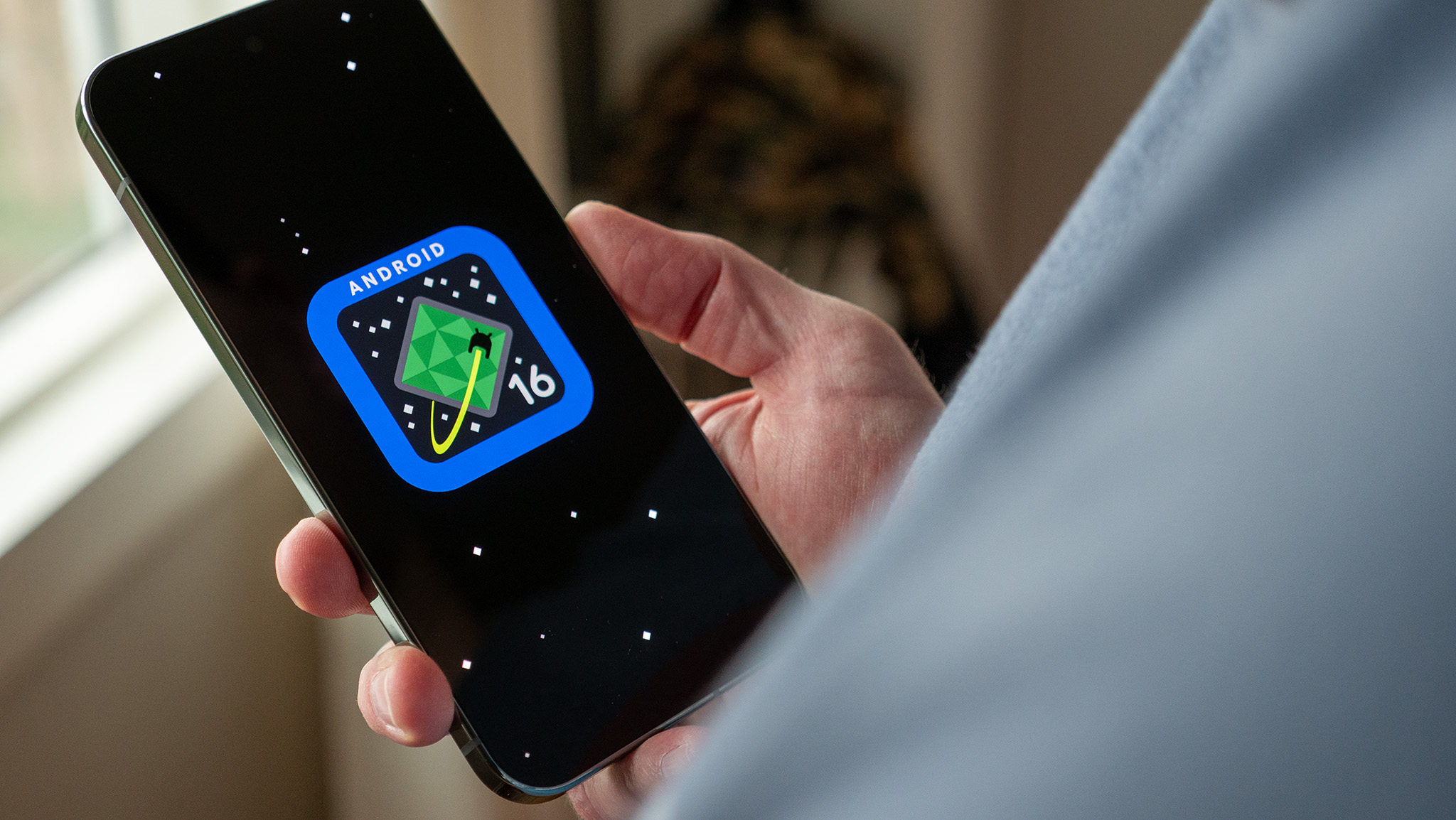Pixel 8 Pro vs. Pixel 6 Pro: May the better Pixel win
Google made the Pixel 8 Pro better, but is it enough?
Get the latest news from Android Central, your trusted companion in the world of Android
You are now subscribed
Your newsletter sign-up was successful
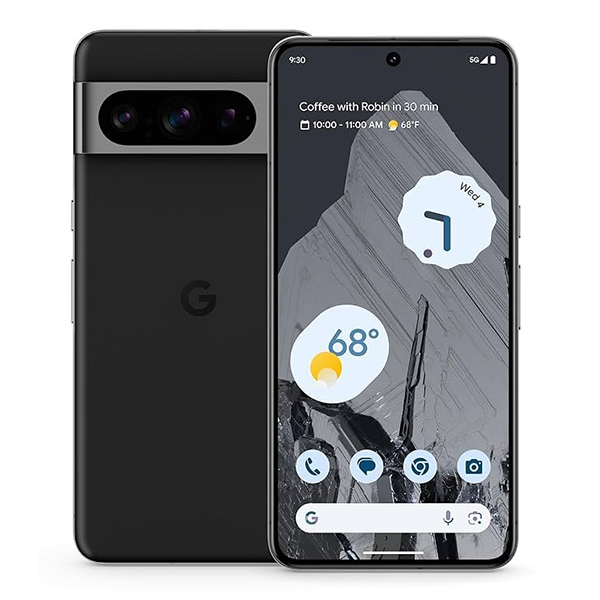
AI-packed Pixel
The Google Pixel 8 Pro features a better design and AI editing feature you won't find on the Pixel 6 Pro. The Pixel 8 Pro fixes the issues many disliked on the Pixel 6 Pro, such as overheating, and offers superb features, such as the latest AI features and seven years of updates.
Pros
- Fantastic camera
- Exceptional battery life
- Superb cameras
- Various storage options
Cons
- Lacks a USB-C display output support
- Little increase in charging power
- Thicker phone frame
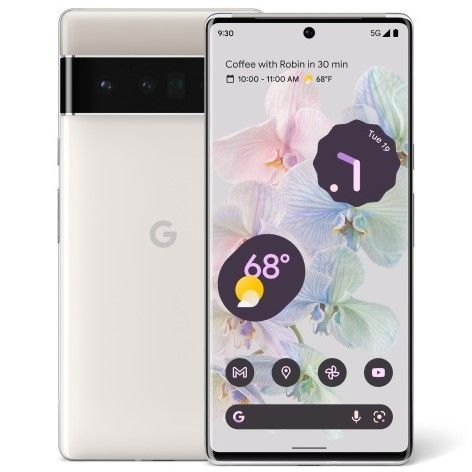
More affordable Pixel
The Pixel 6 Pro doesn't have all the features the Pixel 8 Pro has, but it still offers almost identical speed when using the phone. The Pixel 6 Pro gives you great pictures with its 50MP camera and excellent battery life with its 5,003mAh battery. It has a very similar day-to-day use experience with the latest model.
Pros
- 120Hz LTPO OLED
- Good looking design
- 50MP primary camera with laser autofocus and OIS
- Very cheap now
Cons
- Overheating problem
- Slow and inconsistent fingerprint sensor
The Pixel 8 Pro vs. Pixel 6 Pro is a subject that needs to be addressed since most users consider an upgrade when at least two generations have passed. But, since money doesn't grow on trees, comparing these two models side by side is a must to see if the newer model is worth the extra cash.
While both models support wireless charging, deciding which model you should go with will take more than that. There are improvements with every new model, but that doesn't mean that it's worth buying for many. The Pixel 8 Pro wins in the AI battle, but is it enough to win the overall war? Let's see what these two models have to offer.
Pixel 8 Pro vs. Pixel 6 Pro: Design and display
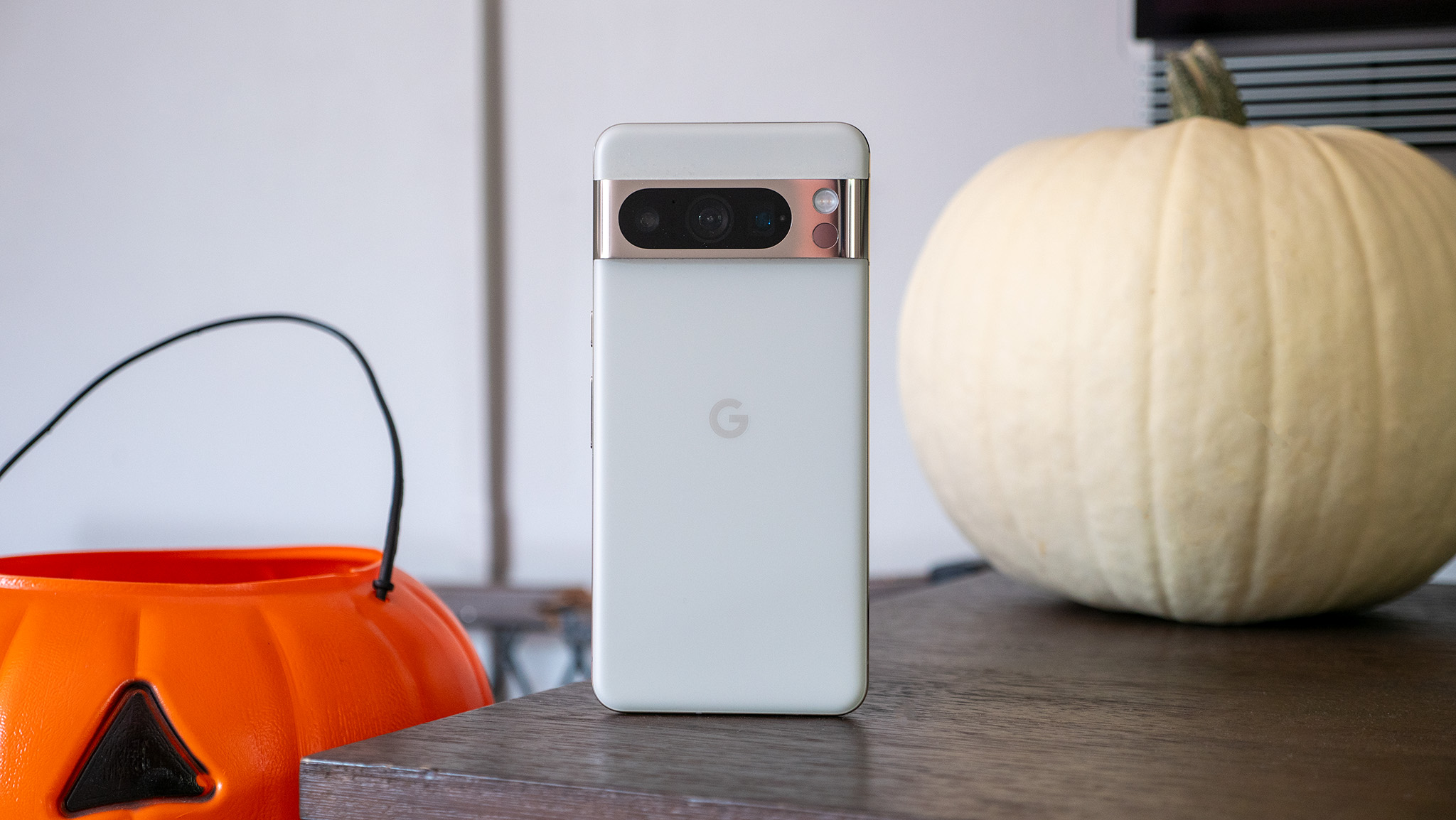
The difference in designs between the Pixel 8 Pro and the Pixel 6 Pro is not dramatic, but there are notable differences. The Pixel 8 Pro features frosted matte glass and more rounded corners for a more comfortable feel. It also comes with a flat screen, and the bezels are smaller. You can get the phone in Porcelain, Obsidian, Bay, and Mint.
The Pixel 6 Pro, on the other hand, comes in Sorta Sunny, Stormy Black, and Cloudy White. It has a glossy glass finish, which is something not many were happy with. The corners are less rounded, so they are a little uncomfortable to hold.
Moving on to the screen of the Pixel 8 Pro, it features Gorilla Glass Victus 2 and a 6.7-inch 120HZ LTPO (low-temperature polycrystalline oxide) panel. You can see the difference between the two models when using them in direct sunlight, since the Pixel 8 Pro reaches an impressive peak brightness of 2400 nits. The 120Hz display can scale down to 1Hz for improved efficiency. Meanwhile, the Pixel 6 Pro comes with Gorilla Glass Victus and a 6.7-inch 120Hz OLED display, not a Super Actua OLED like the Pixel 8 Pro.
Both models feature an IP rating of IP68, which means the phones are resistant to dust and fresh water damage and can withstand submersion of up to 1.5 meters for as 30 minutes.
The Pixel 8 Pro is one of the first Android phones to come with a temperature sensor built-in. While the device did not have permission to record human body temperature at launch, the FDA recently granted approval for it. So, you can now use your Pixel 8 Pro to see if you have a fever and will work just as well as a thermometer.
Get the latest news from Android Central, your trusted companion in the world of Android
Pixel 8 Pro vs. Pixel 6 Pro: Connectivity and updates
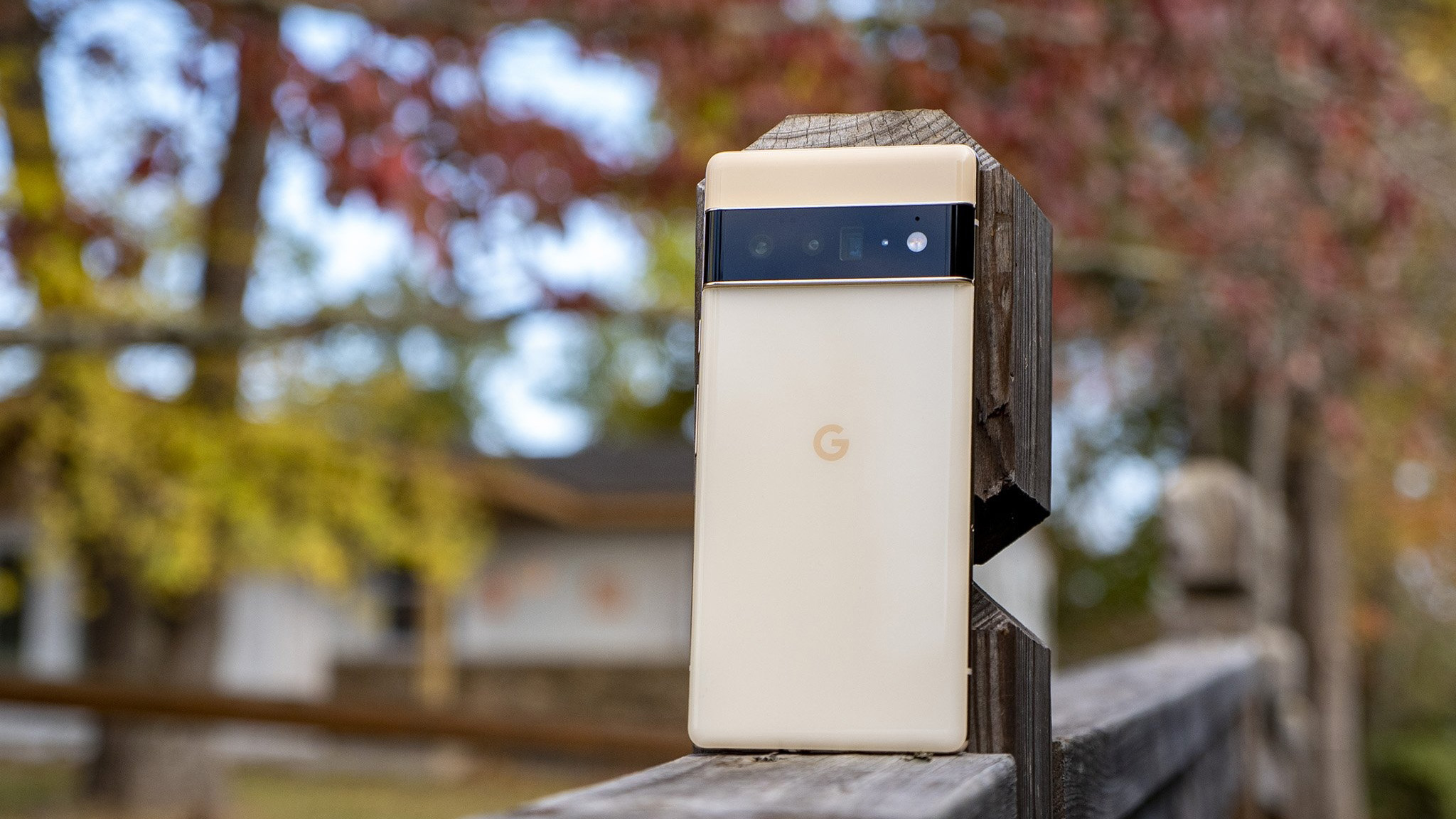
If you're looking for 5G support, you'll find it on both models. On the Pixel 8 Pro, you also get Bluetooth 5.3, one-upping the Pixel 6 Pro that has Bluetooth 5.2. With the Pixel 8 Pro, you also get the newer Wi-Fi 7 as opposed to the 6 Pro's Wi-Fi 6E. Naturally, this means the newer Pixel has better connectivity than the older Pixel 6 Pro.
Another enticing fact about the newer Pixel 8 Pro is the promise of updates for a full seven years. We're talking about seven major Android updates as well as security patches, guaranteed all the way until Android 21.
In contrast, the Pixel 6 Pro will only get guaranteed Android updates until October 2024. However, the device is sure to get security updates until October 2026.
Pixel 8 Pro vs. Pixel 6 Pro: Battery life and storage
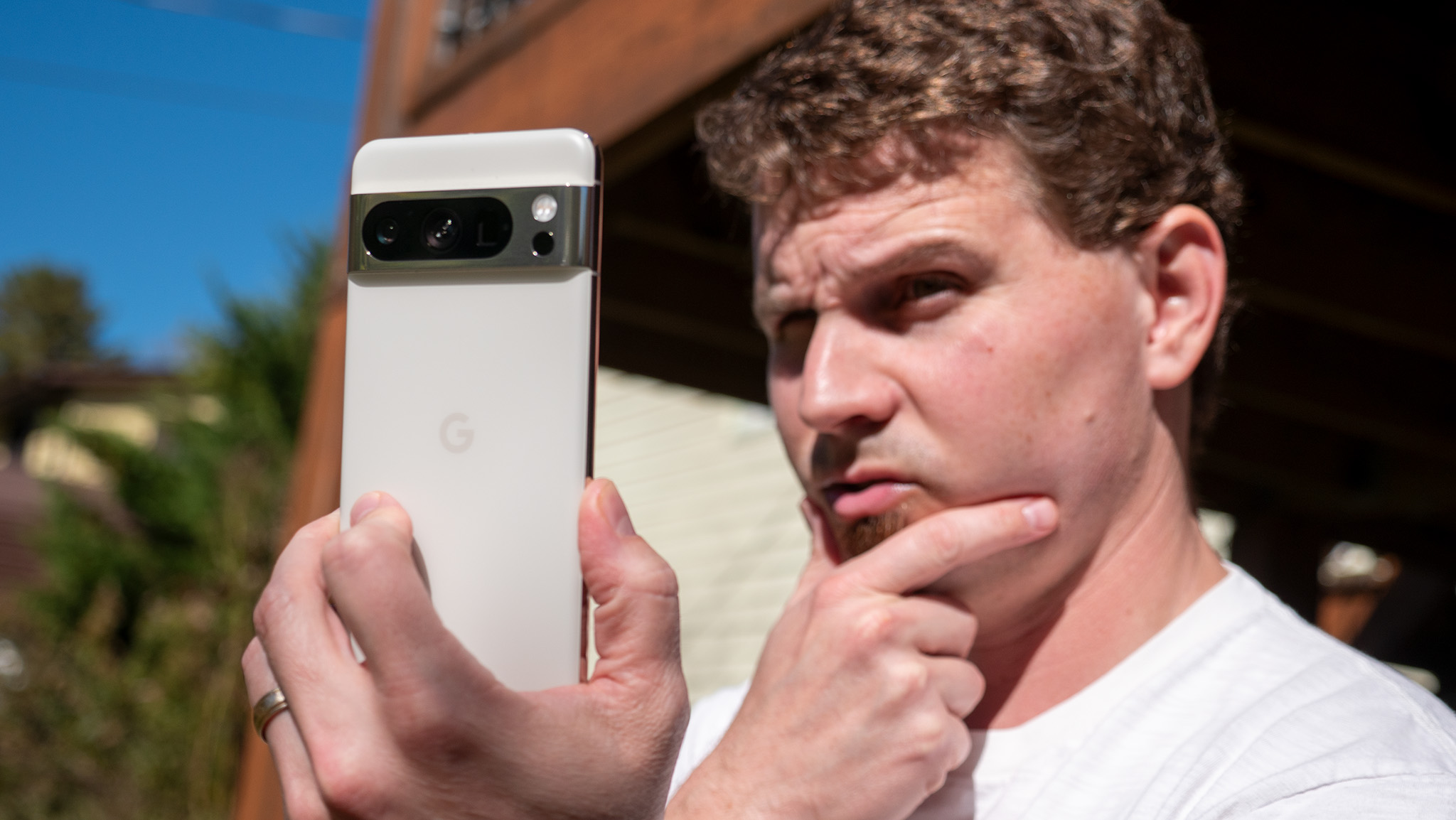
When it comes to battery life, on the Pixel 8 Pro, you get a 5,050mAh cell, and thanks to the Tensor G3 processor, you get about a day's worth of usage and maybe even a little more depending on your usage. As for the charging speed, the 8 Pro supports 30W fast charging via a PPS USB-C charger, going from nought to full in about 80 minutes.
The older Pixel 6 Pro, on the other hand, features a 5,003mAh battery, and charges at 23W. It uses the first-gen Google Tensor processor that has been known to cause overheating while charging. You can get around 24 hours of medium to heavy usage from the device. Recharging to max from scratch takes about 111 minutes according to Android Authority.
One feature that many consider when buying any phone is its storage capacity. The Pixel 8 Pro is available in 128GB, 256GB, 512GB, and 1TB. Unfortunately, there is no expandable storage.
The Pixel 6 Pro comes in three options consisting of 128GB, 256GB, and 512GB. You won't get expandable storage with this model either. Both models also have dual-SIM support.
Pixel 8 Pro vs. Pixel 6 Pro: Cameras
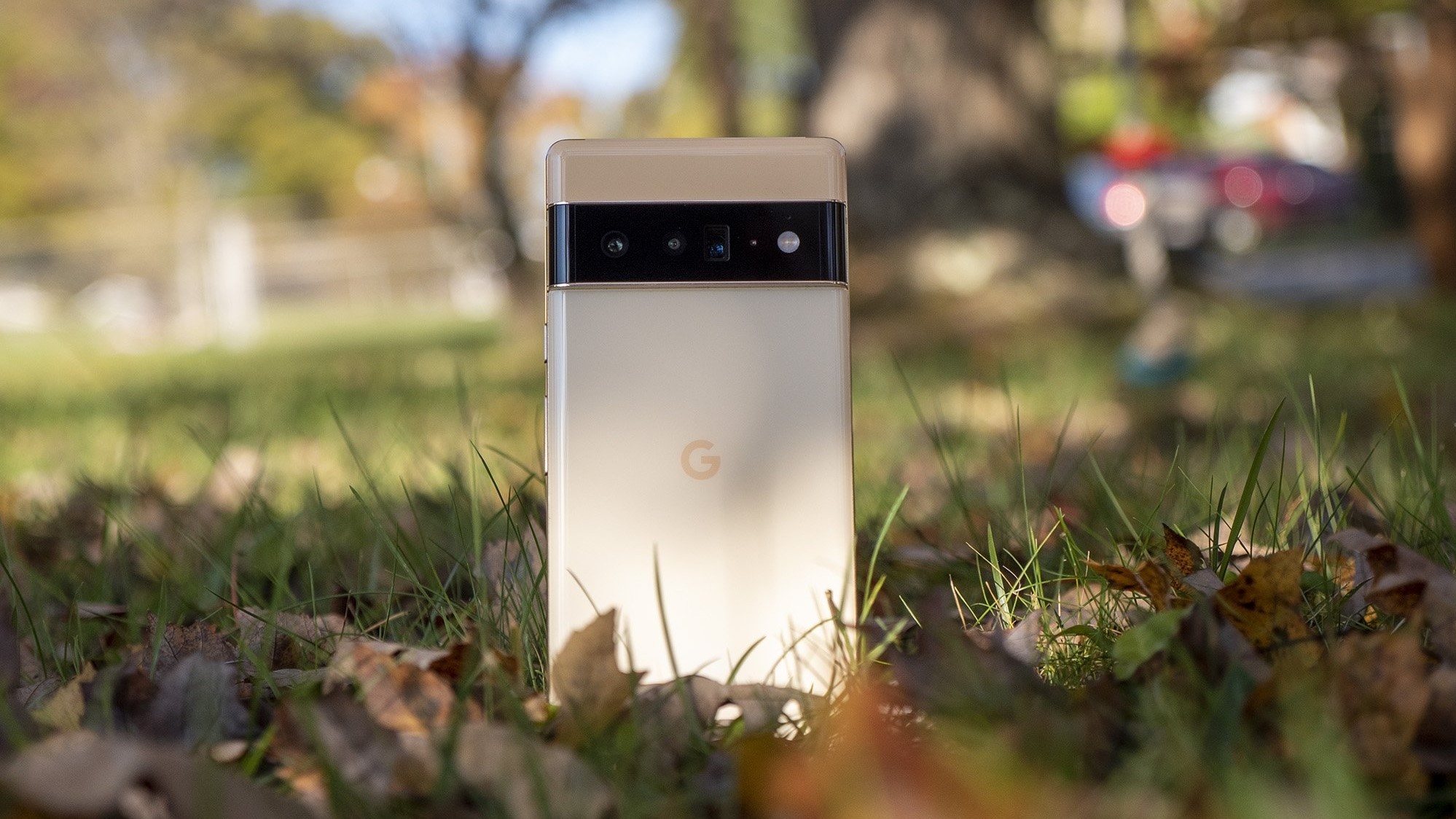
Camera-wise, the Pixel 8 Pro features a 50MP primary camera and a 10.5MP front-facing camera. You'll get better pictures in low-light areas with this model. The front-facing camera has a lower resolution camera than the Pixel 6 Pro, but that doesn't mean the quality suffers, thanks to software magic. Summing it up, the Pixel 8 Pro is superior in camera software.
The Pixel 6 Pro has a 50MP primary camera, so you'll get almost the same experience on both models with their triple camera setup. On the Pixel 8 Pro, all three lenses have lower apertures, giving you brighter, less noisy, low-light pictures. The ultrawide lens also got an upgrade from the Pixel 6 Pro since the Pixel 8 Pro now flaunts a 48MP telephoto and a 48MP ultrawide camera.
On the Pixel 8 Pro, you'll also find Night Sight Video and Video Boost, so your videos look better in low-light areas, as well as features like Magic Eraser, Best Take, Macro Mode, and Audio Magin Eraser to improve your creations. The 6 Pro shares some of these features with its predecessor.
The Pixel 8 Pro also wins when it comes to zoom since it has 30x Super Res, while the Pixel 6 Pro only has 20x zoom. Don't forget that the Pixel 8 Pro has an AI boost when editing your creations. Other things you can do on the Pixel 8 Pro that you can't on the Pixel 6 Pro include features such as adjusting brightness, white balance, shutter speed, shadow, focus, and ISO prior to taking the picture.
In addition to that, something you can do on the Pixel 8 Pro that you can’t do on the Pixel 6 Pro is use face unlock.
| Category | Google Pixel 8 Pro | Google Pixel 6 Pro |
|---|---|---|
| OS | Android 14 | Android 14 |
| Display | 6.7-inch 1-120Hz Super Actua OLED, 2992 x 1344 (489ppi), 1600 nits (HDR), 2400 nits | 6.7-inch 120Hz LTPO OLED, QHD+ 1440 x 3120 (512ppi) |
| Dimensions | 162.6 x 76.5 x 8.8 mm | 163.9 x 75.9 x 8.9 mm |
| Battery | 5,050mAh | 5,003mAh |
| Storage | 128GB / 256GB / 512GB/ 1TB for US | 128GB / 256GB / 512GB |
| Processors | Google Tensor G3 | Google Tensor |
| Rear camera | 50MP Octa PD wide camera, 48MP Quad PD ultrawide camera with autofocus, 48MP Quad PD telephoto camera | 50MP Octa PD Quad Bayer wide camera, 12MP ultrawide camera, 48MP telephoto camera |
| Front camera | 10.5MP Dual PD selfie camera, autofocus, 1.22 μm pixel width,ƒ/2.2 aperture | 11.1MP, Fixed focus, 1.22 ƒ/2.2 aperture, 1.22 μm pixel width |
| Video | 4K video recording at 24 FPS, 30 FPS, 60 FPS, Dual exposure on wide camera | 4K video recording at 30 FPS, 60 FPS |
| Buttons and ports | USB Type-C 3.2, power button, volume controls | USB Type-C 3.1, power button, volume controls |
| SIMs | Dual SIM (single nano SIM and eSIM) | Dual SIM (single nano and eSIM) |
| Connectivity and location | Wi-Fi 7 (802.11be) Bluetooth 5.3 with dual antennas, NFC, Google Cast, Dual Band GNSS, GPS, GLONASS, Galileo, QZSS | Wi-Fi 6 (8.2.11ax), Bluetooth 5.2, NFC, Google Cast |
| Colors | Bay, Mint, Obsidian, and Porcelain | Black, White, and Sunny |
| RAM | 12GB LPDDR5X | 12GB LPDDR5 |
| Speakers | Stereo speakers with spatial audio | Stereo speakers |
| Wireless charging | Yes | Yes |
| Water resistance | IP68 | IP68 |
| Weight | 213g, 7.5oz | 213g, 7.5oz |
| Cellular | 5G | 5G |
Pixel 8 Pro vs. Pixel 6 Pro: Should you upgrade?
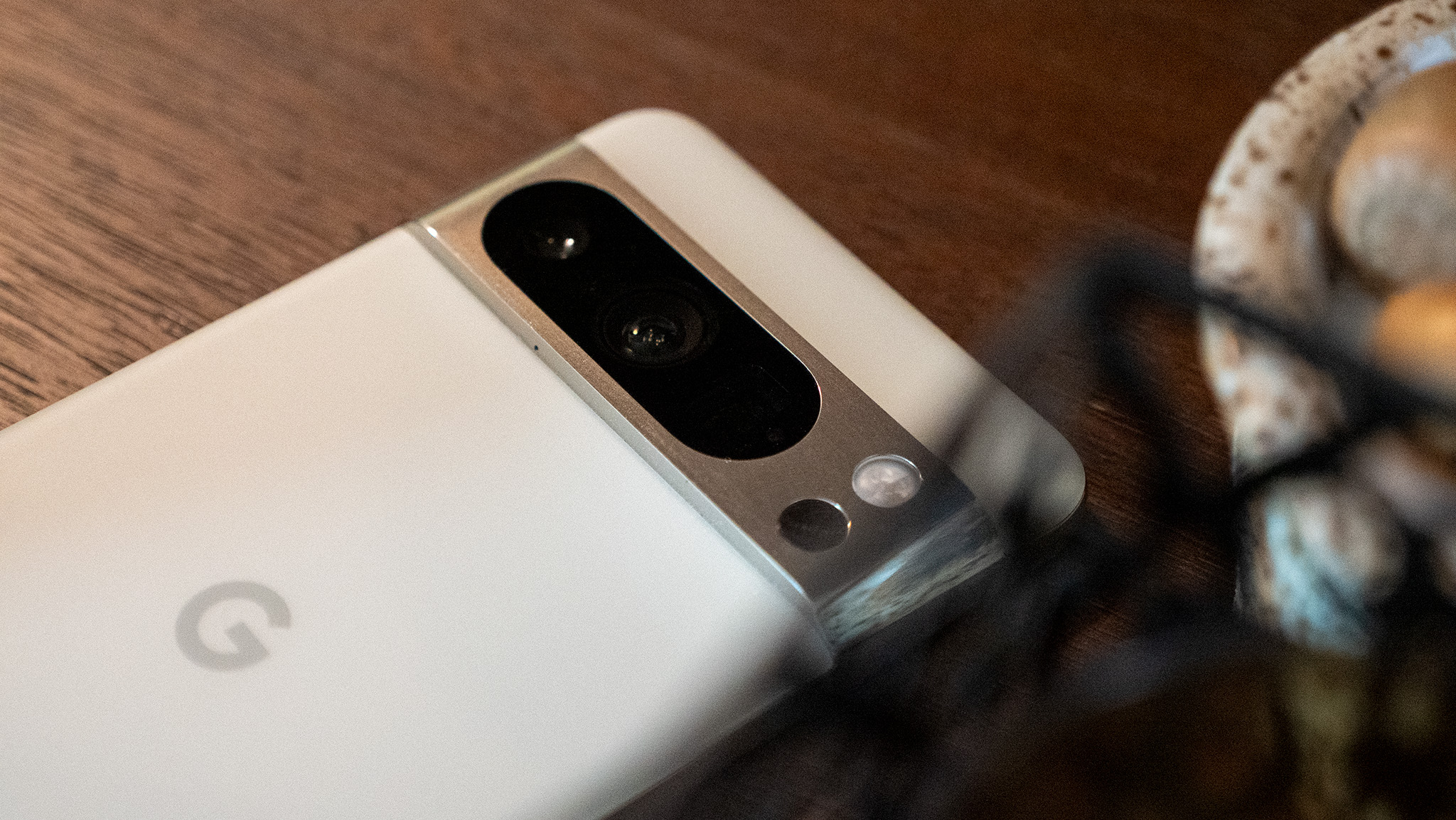
When you know what the Pixel 8 Pro offers, upgrading to the latest model is very tempting. With the Pixel 8 Pro, you can get exclusive AI features you won't get on the Pixel 6 Pro. Plus, the overheating issues with the previous model are gone in the most recent one. The Pixel 8 Pro also gives you a more comfortable hold with more rounded corners, and you won't have to squint at your display since the screen brightness reaches a whole new level.
To upgrade or not to upgrade, that is the question. If you want to see drastic changes, waiting could be an option. But, if you like to see changes you can see, such as a brighter screen, no overheating, and everything AI has to offer, then the upgrade is the way to go. You already passed on the Pixel 7 Pro; why not get the Pixel 8 Pro?

The king of Pixel phones
Make sure you always get the latest Google features first with the Pixel 8 Pro. Have fun with everything AI has to offer on this phone and, be happy knowing that you have seven years of updates coming your way.

A Pixel worth considering
The Pixel 6 Pro is great for everyday use. It doesn't have all the AI features the latest model has but its features still give you a great Pixel experience since it matches various features of the latest Pixel 8 Pro model.

Judy is a tech geek who loves technology. She has been writing about tech for over a decade, covering various devices and programs. She stays updated on the latest gadgets, upgrades, features, and news. She aims to make complicated tech information easy for everyone to read. When she's not writing about tech, she's watching Indiana Jones for the 100th time.
- Namerah Saud FatmiSenior Editor — Accessories
You must confirm your public display name before commenting
Please logout and then login again, you will then be prompted to enter your display name.
